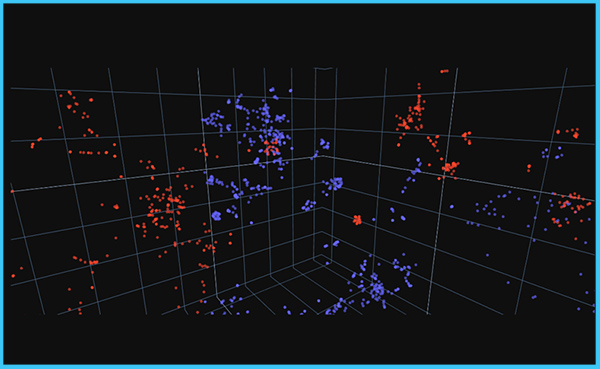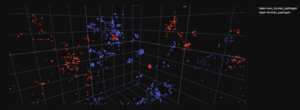
MRIGlobal infectious disease experts have been keeping a close eye on a coronavirus outbreak stemming from the Chinese city of Wuhan. The team has been gathering information since the illness first appeared in late 2019 and started spreading to neighboring countries and in the U.S.
MRIGlobal’s global health team is experienced in a variety of the efforts to control and stop a disease like the new coronavirus.
In 2012, the MRIGlobal team was engaged in the early studies to understand Middle Eastern Respiratory Syndrome (MERS). As part of the National Institutes of Health Integrated Research Facilities, the team grew the virus and started studies to develop candidate vaccines and therapeutics. Staff members were also engaged in international meetings at the World Health Organization and in Saudi Arabia to assist during the outbreak. During the Ebola outbreak in 2014-2016, the team once again was called upon to work in the laboratory and in West Africa to diagnose disease and train national staff. The latter work continues as part of the global engagement to detect and protect the globe from diseases. From these efforts, MRIGlobal has become a leader in One Health, a principled approach that recognizes the health of people is connected to the health of animals, plants and the environment.
Like severe acute respiratory syndrome (SARS, another coronavirus) the virus appears to have originated in a live animal market in Wuhan, where there is frequent contact between different species of livestock and consumers who are looking to purchase animals. This is clearly another example of the need to systematically understand One Health principals and apply them to limit these occurrences. The officials in China, Asia Pacific and the U.S. are doing their best to understand the disease and to implement standard quarantines to prevent spread of the disease.
“The speed of information sharing and scientific understanding of the virus remains a testament to what science can do in modern times,” says Gene Olinger, MRIGlobal virologist. “Any new contagious illnesses, especially coronaviruses, require painstaking processes that are long and laborious. In the past, virus isolation, genetic evaluation and testing of possible candidate vaccines and treatments could take years. The investments that have been made to speed this process are clearly increasing the speed of the response in this outbreak. In less than a few weeks, the information learned provides the key information to find treatments and develop diagnostics and vaccines. MRIGlobal and other global partners stand ready to perform the same work within weeks of the identification of an entirely new virus.”
Symptoms of infection with the virus can start off looking like the common cold, with people experiencing cough, fever, runny nose, headache, sore throat, or general malaise. More serious cases also include symptoms like difficulty breathing or bronchitis or pneumonia. Fatal outcomes are typically associated with other co-morbidities.
The outbreak is an evolving situation. The Centers for Disease Control and Prevention website https://www.cdc.gov/coronavirus/2019-nCoV/summary.html offers guidance for travelers and health professionals. For more information about MRIGlobal expertise in global health, visit www.mriglobal.org

3D Embedding of Coronavirus genomic data using a novel, alignment-free sequence analysis method developed by MRIGlobal called Vorpal. The red cluster at the center of the image is the 2019-nCOV group. Courtesy of Phil Davis, bioinformatics senior scientist.